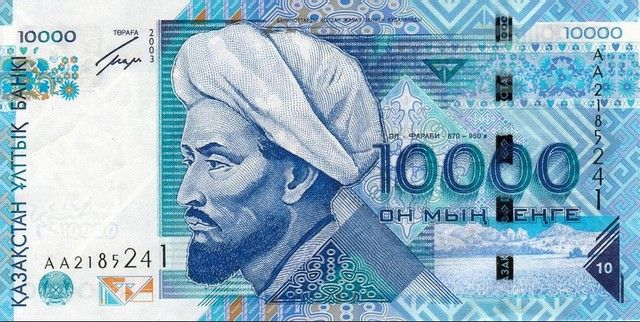Viewing results 1 - 6 of 156
ALMATY (TCA) — Kazakhstan’s currency is in a very bad shape. There are various reasons for that, and although President Nazarbayev advises his citizens not to buy imported goods, people on the street feel the pinch and try to switch to dollars as much as they can. The crash in global prices of oil and other commodities has already brought Russia and Azerbaijan currencies to their lowest level losing more than 50%. Kazakhstan is not doing any better with the tenge moving, in about two years, from about 150 tenges per dollar to the incredible low level of close to 400 and the situation has much to do with the ever shifting National Bank policies. Continue reading
BISHKEK (TCA) — Turkey is one of the major trading partners of Kyrgyzstan, Kyrgyz Economy Minister Arzybek Kojoshev said at the Kyrgyz-Turkish Investment and Trade Forum in Ankara late last week. Continue reading
BISHKEK (TCA) — Turkish importers will buy beans grown in Kyrgyzstan’s Talas province for 33-35 soms per kilogram ($1=76 soms), the Kyrgyz Agriculture Ministry said. Currently, the price is 20-28 soms. Continue reading
BISHKEK (TCA) — Chinese investors show the strongest dynamics of foreign direct investment (FDI) in the Eurasian Economic Union (EEU) countries (Armenia, Belarus, Kazakhstan, Kyrgyzstan, and Russia). Between 2008 and 2014, China's FDI stock in the region more than doubled, from $11 billion to $27.1 billion. Over the same period, Japanese FDI reached $14.4 billion and South Korean FDI reached $1.9 billion, according to the report “EEU and Eurasia: Monitoring and Analysis of Direct Investments”, prepared by Eurasian Development Bank's (EDB) Centre for Integration Studies. Continue reading
BISHKEK (TCA) — In Russia, the number of labor migrants from Kyrgyzstan is on the rise while that from Tajikistan and Uzbekistan is decreasing, the Fergana information agency reported with reference to the Federal Migration Service of Russia (FMS). Continue reading
BISHKEK (TCA) — Defending the frontier with Afghanistan has become top priority for the three former Soviet republics bordering it in 2015. Whether that frontier could become a frontline or not depends on how much the other two are ready to contribute and how much stability they can maintain to do so. For Kyrgyzstan, the year 2015 is most likely to go into history as the year of the new revolution that never happened and the remarkable survival and strengthening of its parliamentary rule. It was, remarkably, much due to the personal input of President Atambayev, who is behind the party that has the largest faction in both the previous and the new parliament, that dark prophecies of “destabilisation” and “economic failure” failed to materialize, making Kyrgyzstan’s model go in the direction of the French than e.g. of the British one. Given the geopolitical and economic challenges in the region, this may well be a favourable option. Continue reading

